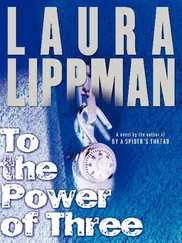Tim carries the clean platter, one of his mother’s “good pieces,” to the built-in corner cupboard. It goes on the highest shelf, which is not quite within his reach. “Ma, where’s the stepladder?”
“Oh, I put that out in the garage, years ago. Just stand on a chair.”
He does, although he’s nervous about his weight, and he doesn’t like the idea that his mother gets up and down from a chair when she needs something from the upper reaches of the breakfront. He really should get that stepladder out of the garage, have it closer to hand.
His father always complained that the house wasn’t well built, but it appears more solid to Tim than the overpriced town house Go-Go bought for his family last year. Tim couldn’t begin to help with that purchase. One thing to hide a thousand or so from Arlene, quite another to come up with fifty thousand. His mother mortgaged this house without consulting him or Sean. He probably should be grateful that the housing market had already imploded, even if the stock market crash did ding the hell out of his girls’ college funds. Otherwise, his mother would have taken out even more and ended up underwater in her mortgage in a house that had been hers in full before his father died.
Both Tim and Sean were outraged when they heard about the loan, but it was too late to do anything. Doris claimed she didn’t understand why they were angry with her. “I bought a house for my grandbabies, and that’s who all my money is for anyway, the grandchildren.” Tim didn’t want to explain to her that she had taken her primary asset and given it in full to two of her six grandchildren. The whole subject made him feel small and mercenary. But Sean had no problem expressing his fury. He told Doris she should rewrite her will to make up for this inequity, reflect the fact that the $50,000 loan was an advance against what the girls might have inherited and they would be entitled to nothing else. A disproportionate advance, he added, with surprising bitterness. Of the three boys, Sean is the best fixed. Only one kid, the kind of kid sure to score a financial aid package to college because of his cross-country stuff. Plus, Sean’s father-in-law is loaded. “It’s not about the money,” Sean said heatedly when Tim called him on this.
In Tim’s experience, everything is about the money, especially whenever people say it’s not about the money. Granted, the money stood for something in Sean’s eyes, but what? Attention, love? Sean never lacked for either. And he still gets to be the good son, even though it’s Tim standing in their mother’s kitchen, drying the things that are too precious or too large to go in the dishwasher.
Arlene catches his eye and gives him a smile, one in which there is a world, a history of understanding. She is both insider and outsider in the Halloran family and her perspective, more dispassionate, yet also more forgiving, keeps him on an even keel. Go-Go got the beauties. Sean’s Vivian has a wealthy, privileged family. But there’s no doubt in Tim’s mind that he, of all the Halloran boys, made the best match. How did he do this? How did he find the right woman when he was a sophomore in college, only a few years older than Michelle is right now? Let Sean be the favorite. Tim’s the lucky one, and he’ll take lucky every time.
T he problem with Florida, Sean thinks, is that the weather means more yard work. Sure, its partisans would reply, but there’s no snow to shovel. Ah, but snow shoveling ends, eventually. Yard work never does, especially here in St. Petersburg, even with Duncan’s reluctant help. Duncan despises working in the yard even more than Sean does, but Sean is adamant that Duncan must have some household responsibilities. He rejected Vivian’s suggestion that Duncan do laundry or help with meals, two things he genuinely enjoys and might execute without protracted nagging. “Life isn’t just about having fun, doing what one likes to do,” Sean told Vivian yesterday. Even as he said it, he heard his father’s voice in his head, but it was too late to back down. Plus, the old man had a point.
What would Tim Senior have done with a son like Duncan? Not that Tim Senior would have had a son named Duncan to begin with. Like so many things in Sean’s life, this was Vivian’s decision. “Duncan” was mapped out years ago, back in Vivian’s college dorm room, or possibly in doodled daydreams in high school or even junior high. It was a plan of such long standing that Sean couldn’t begin to counter it when she laid it out after they became engaged. They would wait exactly two years into their marriage to start trying to have a child. They would have only one child. Sean was OK with both those decisions. If the child was a girl, she would be named Madeline; if a boy, Duncan. Sean did not approve of Duncan, but Vivian claimed it was a family name. Later, her mother admitted it was merely a name she loved and wanted to use, only she never had a son. Sean should have started a betting pool on how old Duncan would be before some kid at school started calling him Donut. That clocked in on the first day of third grade here in St. Petersburg, when they were new to the town.
What was less predictable, at least to Sean, was Duncan’s ability to roll with such teasing, deflect and thereby neuter it. Even at eight, he was a confident kid. “Just like you,” his mother said, and Sean would have liked to claim Duncan’s poise as his own. But he knew, even then, that it was different, that his own so-called confidence is all bravado. Duncan is genuinely comfortable in his own skin, which may explain why Sean feels this need to make him uncomfortable from time to time. It’s not that he’s competitive with his son, not at all. The kid just takes so much for granted. He wins races, he’s first chair in all-county orchestra, he gets the lead in all the school plays. Not the musicals, because he can’t sing well enough, but the straight plays. Anything he wants to do well, he does.
So it’s infuriating to watch him half-ass it around the backyard, acting as if he can’t quite understand what is required to prepare the garden for the hot months ahead. Sean doesn’t understand, either, but at least he listened to Vivian when she gave them their marching orders after lunch. She was very clear. Vivian is always clear about all her expectations. For example, if Sean decides he doesn’t want to do yard work at all, that’s fine: Vivian will hire someone to do it. Not some guy with a lawn mower and a truck, though. Vivian will hire the full Magilla Gorilla, a landscaping service, guys in uniforms, with mulch that costs about the same per pound as caviar, not that Sean has eaten much caviar in his life. Vivian’s family isn’t that fancy.
The full Magilla Gorilla . That was a Go-Go-ism, a mangling of the cartoon and the arch phrase, which he probably picked up from one of the gangster films shown on Picture for a Sunday Afternoon.
Vivian’s family doesn’t describe themselves as rich, if only because it would be vulgar to do so. But they are undeniably well-off, and when Sean married her, her father let it be known that marrying his beloved daughter meant supporting her in the style to which she was accustomed. It was like buying a sports car. Sure, you’ve got the cash now, but do you realize how much the maintenance will be? Her parents are on the young side, and they plan to retire early and enjoy their money. These things are never put into words, yet there is no doubt about their expectations. Vivian is the same way. She somehow makes everything clear without being blunt or even raising her voice. After she presented Sean, for example, with her timeline for having their one (and only) child, she added: “And, of course, I will be staying home.”
Читать дальше
Конец ознакомительного отрывка
Купить книгу












